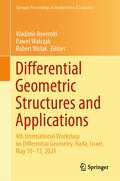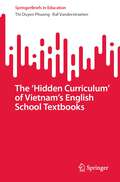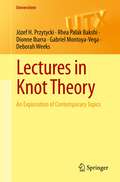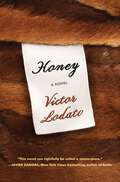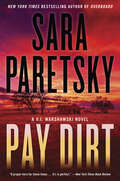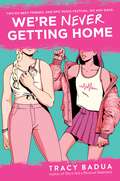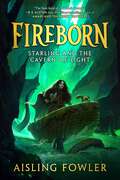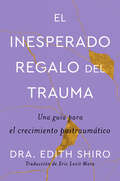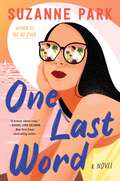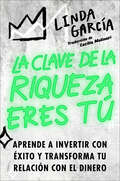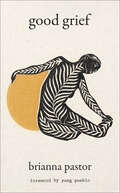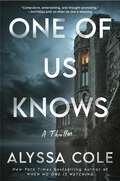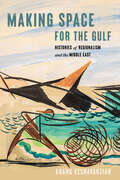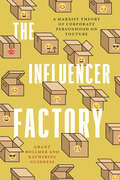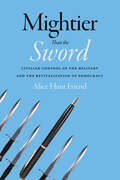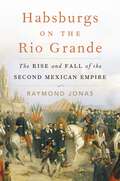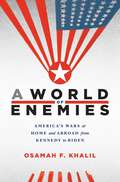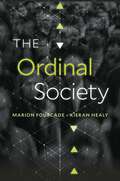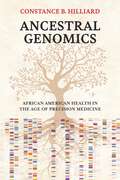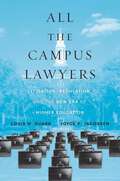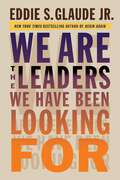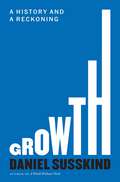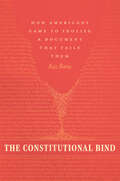- Table View
- List View
Vibration Engineering and Technology of Machinery, Volume II: Select Proceedings of VETOMAC XVI 2021 (Mechanisms and Machine Science #153)
by Rajiv Tiwari Y. S. Ram Mohan Ashish K. Darpe V. Arun Kumar Mayank TiwariThis book presents the proceedings of the XVI International Conference on Vibration Engineering and Technology of Machinery (VETOMAC 2021). It gathers the latest advances, innovations, and applications in the field of vibration and technology of machinery. Topics include concepts and methods in dynamics, dynamics of mechanical and structural systems, dynamics and control, condition monitoring, machinery and structural dynamics, rotor dynamics, experimental techniques, finite element model updating, industrial case studies, vibration control and energy harvesting, and MEMS. The contributions, which were selected through a rigorous international peer-review process, share exciting ideas that will spur novel research directions and foster new multidisciplinary collaborations. The book is useful for the researchers, engineers and professionals working in the area of vibration engineering and technology of machinery.
Differential Geometric Structures and Applications: 4th International Workshop on Differential Geometry, Haifa, Israel, May 10–13, 2023 (Springer Proceedings in Mathematics & Statistics #440)
by Vladimir Rovenski Paweł Walczak Robert WolakThis proceedings contains a collection of selected, peer-reviewed contributions from the 4th International Workshop "Differential Geometric Structures and Applications" held in Haifa, Israel from May 10–13, 2023. The papers included in this volume showcase the latest advancements in modern geometry and interdisciplinary applications in fields ranging from mathematical physics to biology.Since 2008, this workshop series has provided a platform for researchers in pure and applied mathematics, including students, to engage in discussions and explore the frontiers of modern geometry. Previous workshops in the series have focused on topics such as "Reconstruction of Geometrical Objects Using Symbolic Computations" (2008), "Geometry and Symbolic Computations" (2013), and "Geometric Structures and Interdisciplinary Applications" (2018).
The ‘Hidden Curriculum’ of Vietnam’s English School Textbooks (SpringerBriefs in Education)
by Thi Duyen Phuong Raf VanderstraetenThis book analyzes the basic ideas and premises underlying the English textbooks used at the higher secondary school level in Vietnam from the 1980s to the present, from a sociological perspective. The dataset, upon which this book builds, consists of a collection of 18 textbooks, which belong to five sets of locally developed English textbooks for grade 10 to grade 12 students. These series were used in all public schools from the mid-1980s to the present. During this period, schooling expanded rapidly in Vietnam, while English also gained increasing prominence within the school system.This book examines the curricular content of these textbooks and presents a long-term analysis of the ‘hidden’ curricular content in light of Vietnam’s recent history and its government’s concerns about national identity.
Lectures in Knot Theory: An Exploration of Contemporary Topics (Universitext)
by Józef H. Przytycki Rhea Palak Bakshi Dionne Ibarra Gabriel Montoya-Vega Deborah WeeksThis text is based on lectures delivered by the first author on various, often nonstandard, parts of knot theory and related subjects. By exploring contemporary topics in knot theory including those that have become mainstream, such as skein modules, Khovanov homology and Gram determinants motivated by knots, this book offers an innovative extension to the existing literature. Each lecture begins with a historical overview of a topic and gives motivation for the development of that subject. Understanding of most of the material in the book requires only a basic knowledge of topology and abstract algebra. The intended audience is beginning and advanced graduate students, advanced undergraduate students, and researchers interested in knot theory and its relations with other disciplines within mathematics, physics, biology, and chemistry.Inclusion of many exercises, open problems, and conjectures enables the reader to enhance their understanding of the subject. The use of this text for the classroom is versatile and depends on the course level and choices made by the instructor. Suggestions for variations in course coverage are included in the Preface. The lecture style and array of topical coverage are hoped to inspire independent research and applications of the methods described in the book to other disciplines of science. An introduction to the topology of 3-dimensional manifolds is included in Appendices A and B. Lastly, Appendix C includes a Table of Knots.
Dissolved Air Flotation: Equipment, Best Practice and Applications (Springer Water)
by Roumen KaltchevThis book provides an overview of the dissolved air flotation clarification technology. It brings together the three strands of knowledge and experience accumulated in this field - the analysis of the main phenomena involved and the interactions between them, the equipment for its implementation and its main applications in water treatment. The author draws attention to the design and operation of the different equipment used in practice, their advantages, and disadvantages in the different fields of application of this technology.The book is intended for:•Engineers and technicians working on the design of equipment and its integration into the overall water treatment plant as well as in the operation of flotation plants.•Consultants and engineering offices, hoping that it will help them to make the most appropriate choices regarding the applications of this process, as well as in the equipment selections.•Wastewater treatment plants operators, in the hope that it will help them to optimise the operation of their plants and improve their understanding and analysis of some problems they may encounter.•Purchasers and contractors, who have to make sometime difficult choices for reducing costs and, at the same time, ensure and guarantee the long-term performance and reliability of the plant.The book is oriented towards the practical side of implementing the technology. It contains a lot of information about the equipment (much more than in all other available publications on the same subject) as well as practical comments and recommendations that are very rarely found in this kind of book, written mostly by researchers. It will appeal to specialists who are comfortable with water chemistry, but it may also be of interest to water professionals who are more interested in the equipment, design and operation of water treatment plants.
Honey: A Novel
by Victor LodatoMeet a woman as tenacious as Elizabeth Strout’s Olive Kitteridge and as irresistible as Andrew Sean Greer’s Arthur Less: Honey Fasinga, the glamorous daughter of a notorious New Jersey mobster, is returning home at last, ready to reckon with her violent past.As a rebellious teenager, Honey managed to escape her father’s circle of influence and reinvent herself in a world of art and beauty, working for a high-end auction house in Los Angeles. Now in her twilight years, she decides to return home and unexpectedly falls in love. But in her family, nothing has changed. When her grandnephew Michael bursts into her life in what appears to be a drug-fueled frenzy, and her Lexus gets jacked, it’s hard to keep minding her own business. As old cruelties begin to resurface, Honey is no longer sure what she really wants—to forgive or to avenge.This electrifying literary breakout from PEN USA Award-winning author Victor Lodato is a masterful and deeply moving portrait of love in all its forms, of moral ambiguity, and of inspiring change—a story of female rage that asks the question: What are the limits of compassion in a world gone mad?
Pay Dirt: A V.I. Warshawski Novel (V.I. Warshawski Novels #23)
by Sara ParetskyLegendary detective V.I. Warshawski uncovers a mystery with roots dating back to the Civil War in this edge-of-your-seat thriller from New York Times bestseller Sara Paretsky.V .I. Warshawski is famous for her cool under fire, her intelligence, her humor, her unflinching courage, and her love of good coffee. But even the strongest people sometimes need a break to recharge, so her friends send her to Kansas for a weekend of college basketball where Angela, one of her protégées, is playing. And that’s where trouble finds V.I.Sabrina, one of Angela’s roommates, disappears and V.I. agrees to try to find her. Finding a missing person in a city where she knows few people and doesn’t have her trusted contacts is hard, but not as hard as the brutally negative reaction to the detective from some of the locals. When V.I. finds Sabrina close to death in a remote house, she lands herself in the FBI’s crosshairs and faces a violent online backlash. The men running the county’s opioid distribution are also not happy.Discovering a dead body in the same house a few days later, V.I. is pitched headlong into a local land-use battle with roots going back to the Civil War. She finds that today’s combatants are just as willing as opponents in the 1860s to kill to settle their differences.V.I.’s survival depends on keeping one step ahead of players in a game she never intended to play, before the clock runs down.
We're Never Getting Home
by Tracy BaduaHBO’s Insecure meets Dazed and Confused in this messy, tender YA novel about a friendship breakup, set against the backdrop of a chaotic night at a music festival, from rising talent Tracy Badua.Jana Rubio and her best friend, Maddy Parsons, have an epic senior year finale queued up: catching their favorite band at the Orchards, an outdoor music festival a two-hour drive away. When a blowup over Maddy’s time-sucking boyfriend exposes a rift that may have already been growing between them, Jana calls off their joint trip and gets a lift to the festival from her church friend Nathan…only to realize Maddy and her boyfriend are along for the ride, too.All Jana wants is to enjoy the concert and get home as soon as possible. But then Nathan loses his car keys crowd-surfing, and it’s up to Jana and Maddy to find them. As they navigate stolen phones and missing friends, scale Ferris wheels and crash parties, the two of them are forced to reckon with the biggest obstacle of all: repairing their friendship.Will Jana and Maddy find their way home—and also back to each other?
Fireborn: Starling and the Cavern of Light (Fireborn #3)
by Aisling FowlerPhoenix and her friends vow to save Ember from all but certain doom in this final unmissable chapter in the sweeping series that New York Times bestselling author B. B. Alston called “the best kind of children’s fantasy story.”Following the shocking events at Icegaard, Phoenix and her friends gather with the Hunters, desperate to unite the warring clans before their enemy, the Master, launches his attack on Ember.The Cavern of Light offers hope in the form of a legendary weapon, but the friends must brave the unknown, facing down new and deadly creatures in search of the artifact that could save their world.As an epic final showdown draws near, Phoenix is determined not to lose anyone else that she loves. But the Master is more brutal and powerful than she ever imagined, and as Phoenix’s past and present collide, unthinkable sacrifices will have to be made to defeat him.
The Unexpected Gift of Trauma \ El insospechado regalo del trauma (Sp.): Una guía para el crecimiento postraumático
by Dr. Edith ShiroUn revolucionario libro sobre el trauma, que ofrece a los lectores un esquema de cinco etapas para alcanzar el crecimiento postraumático.El trauma siempre ha sido parte de la experiencia humana, y los eventos traumáticos —tanto físicos como emocionales— pueden trastornar todo nuestro ser y cambiarnos para siempre. Aunque sabemos más que hace diez años acerca de los efectos neurológicos y físicos a largo plazo que deja el trauma, pocos se dan cuenta de que la experiencia del trauma no tiene que condenarlos a una vida de sufrimiento y duelo.En este libro único, la renombrada psicóloga Edtih Shiro comparte un poderos esquema de cinco pasos para el crecimiento postraumático, un proceso terapéutico que ayuda no solo a recuperarse, sino a experimentar crecimiento y renovación después del trauma. Inspirada por sus abuelos, que fueron refugiados y sobrevivientes del Holocausto, la Dra. Shiro ha dedicado su vida a estudiar el trauma y sus secuelas. Desarrolladas a lo largo de más de tres décadas de investigación y práctica, las etapas que propone Shiro —conciencia, despertar, llegar a ser, ser y transformarse— explican cómo el trauma puede ser un catalizador para el cambio positivo y transformador. Fundado en la ciencia y lleno de herramientas prácticas y enseñanzas, El inesperado regalo del trauma revela una nueva y revolucionaria forma de ver el trauma y recuperarse de sus efectos. A groundbreaking book on trauma that offers readers a five-stage framework for achieving posttraumatic growth.Trauma has always been part of the human experience, and traumatic events – both physical and emotional –can shake our very foundation and leave us forever changed. While we know more about the lasting neurological and physical effects of trauma than we did a decade ago, few people realize that experiencing trauma doesn’t have to sentence you to a lifetime of suffering and grief.In this first book of its kind, renowned psychologist Dr. Edith Shiro shares a powerful, five-stage framework for posttraumatic growth, a therapeutic process that helps you not just recover, but experience growth and renewal in wake of trauma. Inspired by her grandparents, who were refugees and Holocaust survivors, Dr. Edith Shiro has dedicated her life to the study of trauma and its aftereffects. Developed over more than three decades of research and practice, Shiro’s stages – Awareness, Awakening, Becoming, Being, and Transforming – outline how trauma can be a catalyst for positive, transformative change.Grounded in science and filled with practical tools and takeaways, The Unexpected Gift of Trauma reveals a groundbreaking new way to think about and heal from trauma.
One Last Word: A Novel
by Suzanne Park“With pitch-perfect humor, endearing insights and wonderfully relatable characters, One Last Word is a smart and breezy read about taking hold of the life you want and refusing to let go. An absolute delight.” —Allison Winn Scotch, bestselling author of Take Two, Birdie MaxwellWhat would you say to your meddling parents, your ex-best friend, your toxic boss, or your high school crush if you didn’t have to face the consequences?Sara Chae is the founder of One Last Word, an app that allows you to send a message to anyone you want after you pass. Safeguards are in place so the app will only send when you’re definitely, absolutely, 100% dead, but when another Sara Chae dies and her obituary is posted online, Sara discovers that drafted messages she had drunkenly uploaded on one night have been released —one each to her emotionally charged mother, to her former best friend who ghosted her, and to her unrequited high school crush, Harry Shim. Still reeling from this disaster, Sara finds out she’s been accepted into a venture capital mentorship program— and that the mentor she’s been assigned to is none other than Harry, who’s now a major VC superstar. With her life going from uncertain to chaotic overnight, Sara has to deal with the havoc that ensues and reopen wounds from the past to find a true path forward.A pitch-perfect homage for fans of Annabel Monaghan, Alisha Rai, and Jenny Han, One Last Word is an empowering, laugh-out-loud story about a woman who learns to speak up and fight for what she wants in life and love.
Wealth Warrior, The \ La clave de la riqueza eres tú (Spanish edition): Aprende a invertir con éxito y transforma tu relación con el dinero
by Linda GarciaUna guía accesible para aprender a invertir, tomar el control de tus finanzas, empoderarte y despertar a la guerrera de la riqueza que llevas dentro.Linda García creció, como muchos de nosotros, en un hogar donde la escasez y las deudas eran el pan de cada día. Desde muy joven, se las arregló para cubrir apenas los gastos más básicos. Sin embargo, gracias al generoso consejo de un compañero del trabajo, Linda hizo su primera inversión, y su vida cambió: doscientos dólares se convirtieron en siete mil, y estos, al cabo de varios años, en cien mil.Como orgullosa latina, García entiende que crear riqueza puede significar algo más que entrar en ámbitos financieros históricamente vedados a las comunidades latinas y de color, y, en particular, a las mujeres. Quizás primero sea necesario llegar a la raíz de nuestras heridas monetarias: los factores y experiencias que limitan nuestra capacidad de sentirnos merecedores de riqueza y capaces de construirla. En este manual de inversión, la autora nos enseña a establecer un presupuesto, crear un "fondo de oportunidades" y pagarnos primero a nosotros mismos. Nos muestra cómo analizar una empresa, elegir las acciones adecuadas y crear un plan para multiplicar el dinero.Entre otras cosas, aprenderemos: Qué significa invertir, a dónde va nuestro dinero y cómo leer las gráficas de las acciones. Cómo evaluar empresas, elegir los primeros valores y comprar las primeras acciones.Tácticas para liberarse de la mentalidad de escasez y hacer crecer las acciones para crear una riqueza que nos cambie la vida.Complementado con un glosario accesible de términos bursátiles, La clave de la riqueza eres tú es una guía perfecta para generar la riqueza que te mereces.----An accessible guide to learn how to invest, take control of your finances, empower yourself and awaken the wealth warrior within you.Linda Garcia grew up, like many of us, in a home where scarcity and debt were normal. From a very young age, she managed to cover only the most basic expenses. However, thanks to the generous advice of a co-worker, Linda made her first investment, and her life changed: one hundred dollars became ten thousand, and these, after several years, became one hundred thousand.As a proud Latina, García understands that building wealth can mean more than stepping into financial arenas historically kept from communities of color, Latinex communities, and, especially, women. It may first require getting to the root of our money wounds—the factors and experiences that limit our capacity to feel deserving of wealth and capable of building it. In this investing playbook, she guides you on how to establish a budget, create your “opportunity fund,” and pay yourself first. She shows you how to analyze a company, choose the right stocks for you, and create a plan to multiply your money.Among other things, You’ll learn:What it means to invest, where your money goes, and how to read stock charts.How to assess companies, pick your first stock, and buy your first shares.Tactics to break free from a scarcity mindset and grow your stocks to create life-changing wealth.Complete with an accessible glossary of stock market terms, Wealth Warrior is a true primer on how to generate the wealth you deserve!
Good Grief
by Brianna Pastor“Brianna Pastor is by far one of my favorite new writers. Good Grief is a powerful testament that shows how hard the past can be and that overcoming it is possible. If you want to feel seen and deeply moved, read Good Grief. Brianna Pastor has unparalleled talent, let the power of her writing guide you to a better life.”—yung pueblo, #1 New York Times bestselling authorAn expanded edition with over forty brand-new poems of the bestselling poetry collection Good Grief by Brianna PastorWhen Brianna Pastor released her self-published poetry collection, Good Grief, she was blown away by the outpouring of support from people who reached out and said, “Yes. Me too.” For anyone who has struggled with questions of identity or coped with serious emotional issues, including grief, trauma, anxiety, and depression, this collection will help you find hope on the other side.we don’t know how long our pain will last. we assume that because it hurts now, it is probably going to hurt tomorrow. it may even hurt the next day. perhaps it will get worse. but we sleep, and you see, and we do this marvelous thing in our sleep—we mend. And tomorrow is not always what we thought it would be.—from Good Grief
One of Us Knows: A Thriller
by Alyssa ColeFrom the critically acclaimed and New York Times bestselling author of When No One Is Watching comes a riveting thriller about the new caretaker of a historic estate who finds herself trapped on an island with a murderer—and the ghosts of her past. Years after a breakdown and a diagnosis of dissociative identity disorder derailed her historical preservationist career, Kenetria Nash and her alters have been given a second chance they can’t refuse: a position as resident caretaker of a historic home. Having been dormant for years, Ken has no idea what led them to this isolated Hudson River island, but she’s determined not to ruin their opportunity.Then a surprise visit from the home’s conservation trust just as a Nor’easter bears down on the island disrupts her newfound life, leaving Ken trapped with a group of possibly dangerous strangers—including the man who brought her life tumbling down years earlier. When he turns up dead, Ken is the prime suspect.Caught in a web of secrets and in a race against time, Ken and her alters must band together to prove their innocence and discover the truth of Kavanaugh Island—and their own past—or they risk losing not only their future, but their life.
Making Space for the Gulf: Histories of Regionalism and the Middle East (Worlding the Middle East)
by Arang KeshavarzianThe Persian Gulf has long been a contested space—an object of imperial ambitions, national antagonisms, and migratory dreams. The roots of these contestations lie in the different ways the Gulf has been defined as a region, both by those who live there and those beyond its shore. Making Space for the Gulf reveals how capitalism, empire-building, geopolitics, and urbanism have each shaped understandings of the region over the last two centuries. Here, the Gulf comes into view as a created space, encompassing dynamic social relations and competing interests. Arang Keshavarzian writes a new history of the region that places Iran, Iraq, and the Arabian Peninsula together within global processes. He connects moments more often treated as ruptures—the discovery of oil, the Iranian Revolution, the rise and decline of British empire, the emergence of American power—and crafts a narrative populated by a diverse range of people—migrants and ruling families, pearl-divers and star architects, striking taxi drivers and dethroned rulers, protectors of British India and stewards of globalized American universities. Tacking across geographic scales, Keshavarzian reveals how the Gulf has been globalized through transnational relations, regionalized as a geopolitical category, and cleaved along national divisions and social inequalities. When understood as a process, not an object, the Persian Gulf reveals much about how regions and the world have been made in modern times. Making Space for the Gulf offers a fresh understanding of this globally consequential place.
The Influencer Factory: A Marxist Theory of Corporate Personhood on YouTube
by Grant Bollmer Katherine GuinnessInfluencers are more than social media personalities who attract attention for brands, argue Grant Bollmer and Katherine Guinness. They are figures of a new transformation in capitalism, in which the logic of the self is indistinguishable from the logic of the corporation. Influencers are emblematic of what Bollmer and Guinness call the "Corpocene": a moment in capitalism in which individuals achieve the status of living, breathing, talking corporations. Behind the veneer of leisure and indulgence, most influencers are laboring daily, usually for pittance wages, to manufacture a commodity called "the self"—a raw material for brands to use—with the dream of becoming corporations in human form by owning and investing in the products they sell. Refuting the theory that digital labor and economies are immaterial, Bollmer and Guinness search influencer content for evidence of the material infrastructure of capitalism. Each chapter looks to what literally appears in the backgrounds of videos and images: the houses, cars, warehouses, and spaces of the market that point back to the manufacturing and circulation of consumer goods. Demonstrating the material reality of producing the self as a commodity, The Influencer Factory makes a crucial contribution to our understanding of contemporary economic life.
Mightier Than the Sword: Civilian Control of the Military and the Revitalization of Democracy
by Alice Hunt FriendThe civilian role in managing the military has never been more important. Today, civilian leadership of defense policy is challenged by the blurring line between war and competition and the speed of machine decision-making on the battlefield. Moreover, the legitimacy of political leaders and civil servants has been undermined by a succession of foreign policy failures and by imbalances of public faith in the military on the one hand and disapproval of civilian institutions on the other. A central question emerges: What does appropriate and effective civilian control of the military look like? Combining scholarly expertise and firsthand civilian experience in the Department of Defense, Friend argues that civilians combine authoritative status, institutional functions, and political expertise to ensure that democratic preferences over the use of force prevail. Friend focuses on the ways political context shapes whether and how civilian controllers—the civilians in professional and institutional positions with the responsibility for defense matters—exercise control over the military and each other. Mightier Than the Sword provides insights that enrich civil-military relations scholarship, as well as lessons aimed at revitalizing American democracy.
Habsburgs on the Rio Grande: The Rise and Fall of the Second Mexican Empire
by Raymond JonasThe story of how nineteenth-century European rulers conspired with Mexican conservatives in an outlandish plan to contain the rising US colossus by establishing Old World empire on its doorstep.The outbreak of the US Civil War provided an unexpected opportunity for political conservatives across continents. On one side were European monarchs. Mere decades after its founding, the United States had become a threat to European hegemony; instability in the United States could be exploited to lay a rival low. Meanwhile, Mexican antidemocrats needed a powerful backer to fend off the republicanism of Benito Juárez. When these two groups found each other, the Second Mexican Empire was born.Raymond Jonas argues that the Second Mexican Empire, often dismissed as a historical sideshow, is critical to appreciating the globally destabilizing effect of growing US power in the nineteenth century. In 1862, at the behest of Mexican reactionaries and with the initial support of Spain and Britain, Napoleon III of France sent troops into Mexico and installed Austrian archduke Ferdinand Maximilian as an imperial ruler who could resist democracy in North America. But what was supposed to be an easy victory proved a disaster. The French army was routed at the Battle of Puebla, and for the next four years, republican guerrillas bled the would-be empire. When the US Civil War ended, African American troops were dispatched to Mexico to hasten the French withdrawal.Based on research in five languages and in archives across the globe, Habsburgs on the Rio Grande fundamentally revises narratives of global history. Far more than a footnote, the Second Mexican Empire was at the center of world-historic great-power struggles—a point of inflection in a contest for supremacy that set the terms of twentieth-century rivalry.
A World of Enemies: America’s Wars at Home and Abroad from Kennedy to Biden
by Osamah F. KhalilA sobering account of how the United States trapped itself in endless wars—abroad and at home—and what it might do to break free.Over the past half-century, Americans have watched their country extend its military power to what seemed the very ends of the earth. America’s might is felt on nearly every continent—and even on its own streets. Decades ago, the Wars on Drugs and Terror broke down the walls separating law enforcement from military operations. A World of Enemies tells the story of how an America plagued by fears of waning power and influence embraced foreign and domestic forever wars.Osamah Khalil argues that the militarization of US domestic and foreign affairs was the product of America’s failure in Vietnam. Unsettled by their inability to prevail in Southeast Asia, US leaders increasingly came to see a host of problems as immune to political solutions. Rather, crime, drugs, and terrorism were enemies spawned in “badlands”—whether the Middle East or stateside inner cities. Characterized as sites of endemic violence, badlands lay beyond the pale of civilization, their ostensibly racially and culturally alien inhabitants best handled by force.Yet militarized policy has brought few victories. Its failures—in Iraq, Afghanistan, US cities, and increasingly rural and borderland America—have only served to reinforce fears of weakness. It is time, Khalil argues, for a new approach. Instead of managing never-ending conflicts, we need to reinvest in the tools of traditional politics and diplomacy.
The Ordinal Society
by Marion Fourcade Kieran HealyA sweeping critique of how digital capitalism is reformatting our world.We now live in an “ordinal society.” Nearly every aspect of our lives is measured, ranked, and processed into discrete, standardized units of digital information. Marion Fourcade and Kieran Healy argue that technologies of information management, fueled by the abundance of personal data and the infrastructure of the internet, transform how we relate to ourselves and to each other through the market, the public sphere, and the state.The personal data we give in exchange for convenient tools like Gmail and Instagram provides the raw material for predictions about everything from our purchasing power to our character. The Ordinal Society shows how these algorithmic predictions influence people’s life chances and generate new forms of capital and social expectation: nobody wants to ride with an unrated cab driver anymore or rent to a tenant without a risk score. As members of this society embrace ranking and measurement in their daily lives, new forms of social competition and moral judgment arise. Familiar structures of social advantage are recycled into measures of merit that produce insidious kinds of social inequality.While we obsess over order and difference—and the logic of ordinality digs deeper into our behaviors, bodies, and minds—what will hold us together? Fourcade and Healy warn that, even though algorithms and systems of rationalized calculation have inspired backlash, they are also appealing in ways that make them hard to relinquish.
Ancestral Genomics: African American Health in the Age of Precision Medicine
by Constance B. HilliardA leading evolutionary historian offers a radical solution to racial health disparities in the United States.Constance B. Hilliard was living in Japan when she began experiencing joint pain. Her doctor diagnosed osteoarthritis—a common ailment for someone her age. But her bloodwork showed something else: Hilliard, who had never had kidney problems, appeared to be suffering from renal failure. When she returned to Texas, however, a new round of tests showed that her kidneys were healthy. Unlike the Japanese doctor, her American primary care provider had checked a box on her lab report for “African American.” As a scholar of scientific racism, Hilliard was perplexed. Why should race, which experts agree has no biological basis, matter for getting accurate test results?Ancestral Genomics is the result of Hilliard’s decade-long quest to solve this puzzle. In a masterful synthesis of evolutionary history, population genetics, and public health research, she addresses the usefulness of race as a heuristic in genomic medicine. Built from European genetic data, the Human Genome Project and other databases have proven inadequate for identifying disease-causing gene variants in patients of African descent. Such databases, Hilliard argues, overlook crucial information about the environments to which their ancestors’ bodies adapted prior to the transatlantic slave trade. Hilliard shows how, by analyzing “ecological niche populations,” a classification model that combines family and ecological histories with genetic information, our increasingly advanced genomic technologies, including personalized medicine, can serve African Americans and other people of color, while avoiding racial essentialism.Forcefully argued and morally urgent, Ancestral Genomics is a clarion call for the US medical community to embrace our multigenomic society.
All the Campus Lawyers: Litigation, Regulation, and the New Era of Higher Education
by Louis H. Guard Joyce P. JacobsenHow colleges and universities can respond to legal pressures while remaining true to their educational missions.Not so long ago, colleges and universities had little interaction with the law. In the 1970s, only a few well-heeled universities even employed in-house legal counsel. But now we live in the age of tenure-denial lawsuits, free speech battles, and campus sexual assault investigations. Even athletics rules violations have become a serious legal matter. The pressures of regulation, litigation, and legislation, Louis Guard and Joyce Jacobsen write, have fostered a new era in higher education, and institutions must know how to respond.For many higher education observers and participants, including most administrators and faculty, the maze of legal mandates and potential risks can seem bewildering. Guard, a general counsel with years of higher education law experience, and Jacobsen, a former college president, map this unfamiliar terrain. All the Campus Lawyers provides a vital, up-to-date assessment of the impact of legal concerns on higher education and helps readers make sense of the most pressing trends and issues, including civil rights; free speech and expression; student life and wellness; admissions, advancement, and community relations; governance and oversight; the higher education business model; and on-campus crises, from cyberattacks to pandemics.As well as informing about the latest legal and regulatory developments affecting higher education, Guard and Jacobsen offer practical guidance to those in positions of campus authority. There has never been a more crucial time for college and university boards, presidents, inside and outside counsel, and other higher education leaders to know the law and prepare for legal challenges.
We Are the Leaders We Have Been Looking For (The W. E. B. Du Bois Lectures)
by Eddie Glaude Jr.From the author of the New York Times bestseller Begin Again, a politically astute, lyrical meditation on how ordinary people can shake off their reliance on a small group of professional politicians and assume responsibility for what it takes to achieve a more just and perfect democracy.“Like attending a jazz concert with all of one’s favorite musicians…James Baldwin, Martin Luther King, Jr., Malcolm X, Ella Baker, Toni Morrison, and more…Glaude brilliantly takes us on an epic tour through their lives and work.”―Henry Louis Gates, Jr., author of The Black Box: Writing the RaceWe are more than the circumstances of our lives, and what we do matters. In We Are the Leaders We Have Been Looking For, one of the nation’s preeminent scholars and a New York Times bestselling author, Eddie S. Glaude Jr., makes the case that the hard work of becoming a better person should be a critical feature of Black politics. Through virtuoso interpretations of Martin Luther King, Jr., Malcolm X, and Ella Baker, Glaude shows how we have the power to be the heroes that our democracy so desperately requires.Based on the Du Bois Lectures delivered at Harvard University, the book begins with Glaude’s unease with the Obama years. He felt then, and does even more urgently now, that the excitement around the Obama presidency constrained our politics as we turned to yet another prophet-like figure. He examines his personal history and the traditions that both shape and overwhelm his own voice.Glaude weaves anecdotes about his evolving views on Black politics together with the writings of Ralph Waldo Emerson, John Dewey, Toni Morrison, James Baldwin, and Ralph Ellison, encouraging us to reflect on the lessons of these great thinkers and address imaginatively the challenges of our day in voices uniquely our own.Narrated with passion and philosophical intensity, this book is a powerful reminder that if American democracy is to survive, we must step out from under the shadows of past giants to build a better society—one that derives its strength from the pew, not the pulpit.
Growth: A History and a Reckoning
by Daniel SusskindA vivid account of the past, present, and future of economic growth, showing how and why we must continue to pursue it while responding to the challenges it creates.Over the past two centuries, economic growth has freed billions from the struggle for subsistence and made our lives far healthier and longer. Yet prosperity has come at a price: environmental destruction, desolation of local cultures, the rise of vast inequalities and destabilizing technologies. Faced with such damage, many now claim that the only way forward is through “degrowth,” deliberately shrinking our economic footprint. But to abandon humanity’s progress would be folly. Instead, Daniel Susskind argues, we must keep growth but redirect it, making it better reflect what we truly value.In a sweeping analysis full of historical insight, Susskind shows how policymaking came to revolve around a single-minded quest for greater GDP. This is a surprisingly recent development: economic growth was barely discussed until the second half of the twentieth century. And our understanding of what drives it is more recent still. Only lately have we come to see how humankind emerged from its millennia of stagnation: through the sustained discovery of powerful and productive new ideas.This insight undermines the mantra that “we cannot have infinite growth on a finite planet,” for the world of ideas is infinitely vast. Yet growth’s critics are right to insist that we can no longer focus on its upsides alone. We must confront the tradeoffs, Susskind contends: sometimes, societies will have to deliberately pursue less growth for the sake of other goals. These will be moral decisions, not simply economic ones, demanding the engagement not just of politicians and experts but of all citizens.
The Constitutional Bind: How Americans Came to Idolize a Document That Fails Them
by Aziz RanaAn eye-opening account of how Americans came to revere the Constitution and what this reverence has meant domestically and around the world. Some Americans today worry that the Federal Constitution is ill-equipped to respond to mounting democratic threats and may even exacerbate the worst features of American politics. Yet for as long as anyone can remember, the Constitution has occupied a quasi-mythical status in American political culture, which ties ideals of liberty and equality to assumptions about the inherent goodness of the text’s design. The Constitutional Bind explores how a flawed document came to be so glorified and how this has impacted American life. In a pathbreaking retelling of the American experience, Aziz Rana shows that today’s reverential constitutional culture is a distinctively twentieth-century phenomenon. Rana connects this widespread idolization to another relatively recent development: the rise of US global dominance. Ultimately, such veneration has had far-reaching consequences: despite offering a unifying language of reform, it has also unleashed an interventionist national security state abroad while undermining the possibility of deeper change at home. Revealing how the current constitutional order was forged over the twentieth century, The Constitutional Bind also sheds light on an array of movement activists—in Black, Indigenous, feminist, labor, and immigrant politics—who struggled to imagine different constitutional horizons. As time passed, these voices of opposition were excised from memory. Today, they offer essential insights.

